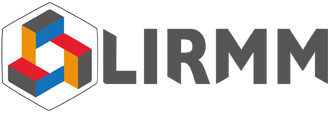Colloquium Siegfried Karg – Wednesday, July 10, 2019
From nano-electronic devices to neuromorphic computing
Abstract: Integrating III-V semiconductor devices on silicon-based complementary metal oxide semiconductors (CMOS) technology is one of the most promising routes for future sub-10 nm nodes. We have developed CMOS-compatible methods to deposit III–V materials on Si with good material quality and is compatible with CMOS processes. Our InGaAs field-effect transistors “on-insulator” offer high-mobility electron channels fully integrated in a standard CMOS environment. Further, the developed technology allowed to fabricate III-V transistors operating as capacitor-less DRAM (1T-DRAM) memory cells. Integration on CMOS platform, low voltage operation and excellent scaling make them viable candidates for embedded memory solutions. In nanowires of high-mobility III-V semiconductors one-dimensional (1D) quantum confinement is observed. We examined ballistic electron transport phenomena in InAs nanowires which could be the basis for topological quantum computing devices.
Machine learning and artificial intelligence (AI) provide huge opportunities for semiconductor hardware. Artificial neural networks based on analog devices designed to perform highly parallel computing operations are explored as energy-efficient AI hardware accelerators. We investigate oscillating neural networks based on electronic relaxation oscillators as a test bed for neuromorphic computing. Experiments and simulations on devices and circuits based on nanoscale electrical switches that exploit the metal-insulator transition of vanadium dioxide (VO2) are shown.
Dr. Siegfried Karg is Research Staff Member at IBM Research – Zurich since 2000. He holds a Ph. D. degree in physics obtained from Univ. Bayreuth (Germany) in 1995. He held positions as a post-doc at IBM Research – Almaden (1995-1996) and as research assistant at Darmstadt Univ. of Technology (1997-1999). He worked on the physics and materials science of organic and polymer devices (OLEDs, OFETs and electrochemical cells) and memory applications (resistive oxide RAM, capacitorless eDRAM). His current research fields are 1D electronic properties of nanostructures and brain-inspired computing applications. S. Karg has authored about 90 publications (h-index 36) and holds more than 30 patents.






